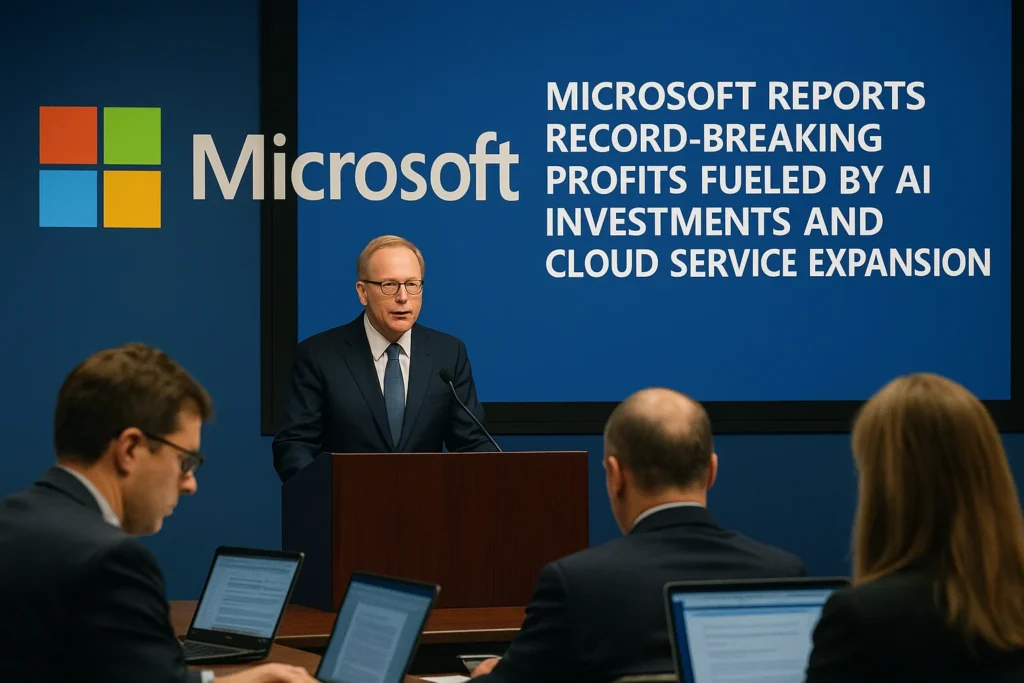The residential real estate giant Greystar Real Estate Partners is standing at one of the most defining crossroads in its history. In recent months, the company has been simultaneously expanding its global footprint, negotiating major acquisitions, and facing multiple lawsuits and investigations that could reshape not just its balance sheet, but its reputation. The focus keyphrase Greystar Real Estate Partners has come to represent both innovation and controversy—a company balancing on the fine line between growth and accountability.
Legal and regulatory pressure: the wind at the back becomes a storm
In early October 2025, Greystar agreed to pay $50 million to settle a class-action lawsuit that accused it of using algorithmic rent-setting software from RealPage, Inc. to inflate rental prices. The broader settlement, worth $141 million, involved several major landlords and marked one of the largest antitrust agreements in the U.S. housing sector this decade. The case alleged that landlords, through RealPage’s shared data system, effectively colluded by allowing the software to set “optimized” prices across multiple competing buildings.
The result? Renters in dozens of U.S. cities allegedly paid hundreds more per month than they should have. Greystar denied wrongdoing, but the settlement speaks volumes. For renters, it’s a sign of possible relief; for Greystar, it’s an operational earthquake. The company will now be restricted from feeding private rent data into shared pricing tools, fundamentally altering how it manages revenue strategy.
This comes on top of another wave of legal pressure. In early 2025, the Federal Trade Commission (FTC) prepared to sue Greystar for allegedly imposing “junk fees”—hidden costs beyond advertised rents. These included inflated administrative charges and nonrefundable service fees, often disclosed only after lease signing. By April, a California-based class action echoed those accusations, arguing that Greystar’s practices distorted market competition and misled consumers.
Greystar insists that these fees reflect real service costs. But the pattern—hidden fees, opaque pricing systems, algorithmic manipulation—creates a narrative of a company operating at the legal and ethical edge. Regulators have noticed. And investors, watching from the sidelines, are starting to question whether the company’s unprecedented growth can coexist with the transparency modern markets now demand.
Expansion and strategic deals: growth at full speed
While Greystar faces courtroom scrutiny, it is also expanding aggressively across continents. In September 2025, the company struck one of its biggest U.S. deals in years—partnering with Grand Peaks to take over management of nearly 11,000 apartment units across seven states, including Texas, Florida, and Colorado. The transaction cements Greystar’s control in some of the country’s hottest housing markets. Scale brings leverage—but it also brings systemic risk. When one operator manages such a vast portion of supply, market distortions become inevitable.
In the United Kingdom, Greystar just secured final approval for an 800-home build-to-rent project in Croydon, London. The One Lansdowne development will reshape the city’s skyline and solidify Greystar’s position as one of Europe’s largest residential developers. In France, the company recently acquired a 257-unit student and young professional residence, pushing its French holdings to over 1,600 owned units and nearly 3,000 under management.
This expansion represents both ambition and adaptation. Facing stricter U.S. oversight, Greystar is shifting its energy toward European and global markets. It’s diversifying product lines—moving beyond traditional apartments into build-to-rent, single-family rentals, and student housing. Each move signals confidence. But confidence is not immunity. The company’s international push adds layers of risk: regulatory diversity, currency volatility, and rising political tension over foreign property ownership.
Leadership and transparency: response to risk
Greystar’s internal reorganization reveals its attempt to navigate the turbulence. Toni Eubanks, a long-time executive, is set to take over as Executive Managing Director of U.S. Property Management in January 2026. Her appointment underscores a pivot toward operational modernization and tenant transparency. In recent interviews, Eubanks highlighted Greystar’s efforts to roll out a “Total Monthly Leasing Price Calculator”—a digital tool showing all potential monthly costs before a lease is signed.
It’s a subtle but significant shift. This kind of transparency tool didn’t appear by accident. It’s a direct response to the FTC’s scrutiny and class-action pressure. By exposing true costs upfront, Greystar aims to restore some of the trust eroded by lawsuits and opaque pricing systems. But the question remains: will transparency features in software be enough to counter years of reputational damage?
Analytical perspective: growth vs governance
The situation reveals a company torn between two imperatives. On one side, Greystar Real Estate Partners is an expansion machine—scaling faster than any private housing operator in history. On the other, it’s a firm under regulatory siege. Its success depends on its ability to convince both investors and the public that these two realities can coexist.
The RealPage settlement suggests otherwise. The lawsuit exposed the fragility of the housing market’s reliance on algorithms and private data. In theory, Greystar’s use of pricing software was meant to “optimize efficiency.” In practice, it may have undermined market fairness. The company’s public relations team has framed the settlement as an “opportunity to move forward.” But forward into what? A system where transparency is enforced, not chosen?
The pattern is clear: growth fueled by data-driven tools has collided with legal and social backlash. The housing crisis—so often blamed on macroeconomics—has found a villain in algorithmic landlords. And Greystar, the largest of them all, has become the symbol of this new power struggle between profit, privacy, and public accountability.
Human impact: residents, renters, and communities
Behind the numbers and lawsuits are real people. Renters have reported price hikes mid-lease, unexplained fees, and near-automated denials for lower-cost units. “It feels like the rent system runs itself now,” said one tenant in Dallas. “There’s no human you can negotiate with—just the software.” This isn’t just anecdotal frustration; it’s a sign of what happens when housing becomes a tech product rather than a social contract.
Community housing advocates argue that Greystar’s dominance undermines affordability by setting artificial baselines. When one company manages hundreds of thousands of units, it doesn’t follow the market—it becomes the market. For smaller property owners, competing against that data-driven pricing power is impossible. For tenants, choice narrows. For cities, it creates a dependency on a single corporate player to maintain social stability.
Not all stories are negative, though. In markets like France and the UK, Greystar has contributed to large-scale rental housing supply, which local governments have long struggled to meet. Some city planners welcome their entry, calling it “institutional stability” for chaotic markets. But others fear it’s the beginning of an era where even European housing becomes another asset class traded between funds rather than homes for citizens.
Counterarguments: the defense of scale
Greystar’s defenders argue that its growth brings professionalism to an otherwise fragmented sector. The company offers consistent maintenance standards, digital leasing systems, and scalable management that mom-and-pop landlords cannot match. Investors see these efficiencies as proof that institutional housing is inevitable. And indeed, Greystar’s massive size gives it leverage to lower operational costs and access better financing rates.
But efficiency doesn’t equal equity. The FTC’s case wasn’t about Greystar being big—it was about being opaque. And in an age of housing scarcity, opacity equals power. That’s why regulators are circling, journalists are probing, and tenants are organizing.
Future risks and turning points
The RealPage case is over, but its shadow remains. Greystar still faces active legal claims tied to “junk fees” and potential deceptive practices. If the FTC’s lawsuit proceeds, penalties could exceed $100 million. Beyond the courtroom, the company’s expansion strategy also faces new headwinds. High interest rates have made financing more expensive, while rent growth across many U.S. metros has slowed to near zero.
Globally, European regulators are far less tolerant of opaque fee structures or cross-border tax advantages. In France, tenant associations are already watching Greystar’s entry with suspicion. In the UK, political voices have raised questions about large U.S. investors driving up local rents.
The company’s technological pivot—integrating AI-driven leasing platforms, predictive maintenance tools, and digital transparency features—could either rehabilitate or further alienate public perception. If those systems empower tenants, Greystar might rebuild its credibility. If they become another layer of automated control, the backlash will intensify.
Conclusion: scale without soul?
Greystar Real Estate Partners stands as a mirror of modern capitalism—innovative, data-driven, and global, yet increasingly distrusted. Its rise represents efficiency without empathy, expansion without clear limits. The company has turned housing into a platform and tenants into data points.
The next phase will test whether Greystar can evolve into a transparent, accountable global operator—or whether it will become the cautionary tale of an industry that pushed technology and consolidation too far. The balance sheet looks strong. The brand, less so.
The world doesn’t need fewer apartments. It needs fewer illusions about who sets their price.
External links:
Reuters: Apartment manager Greystar faces more ‘junk fee’ lawsuits after FTC case
AP News: Greystar and other landlords agree to a $141M deal to settle rent-setting lawsuit
88 views






